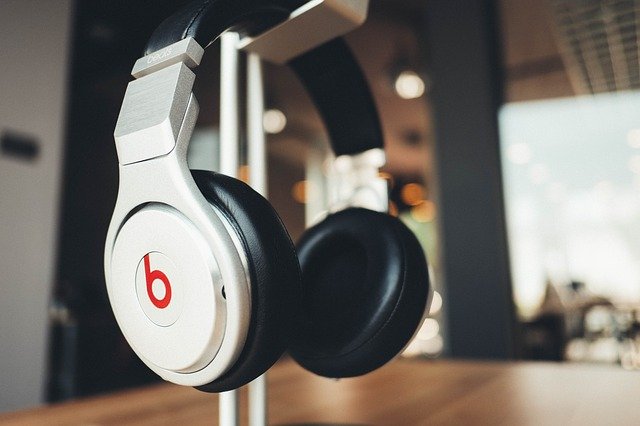Although m4a files have become increasingly popular and many audio players support the format, it is still not as popular and compatible as mp3 files. That is why most music listeners search online for m4a to mp3 converters. Now, most converters make you spend a long time surfing the internet with nothing to show for it and end up redirecting you to another website that won’t help.
The purpose of this article is to help you understand what m4a and mp3 files are, when they should be converted, and the best online converters you can use without spending a lot of time. Better still, these converters are free and you can convert as many files as possible without any limit.
What Is an M4A File?
Also known as MPEG-4 Part 14 files, this audio format was created by Apple to rival and eventually succeed the mp3. After its creation, this compressed audio format became the standard audio format for Apple products with the birth of the iTunes store.
As such, all music purchases on iTunes had the m4a file extension. It is also the format of choice for audio in apps like Nintendo, PlayStation products, and apps downloaded from the Mac and iOS App Stores.
M4a files are fast becoming the go-to audio format now as more app developers are including this format on their products.
M4a files are considered lossy files since they are encoded with the AAC (Advanced Audio Coding) codec, which ensures better compression than mp3’s but with the same bitrates. This results in audio files with better sound quality while being smaller in size.
However, even though many developers are using m4a files and a lot of audio players support this file format, it is still nothing compared to mp3’s in terms of popularity and compatibility. This is a major reason why most people might want to convert from an m4a file to an mp3 file.
What is an MP3 File?
Audio formats like AIFF (Audio Interchange File Format) and WAV (Waveform Audio File Format) offer excellent sound quality, with WAV being the best of them all. However, these uncompressed audio formats have a very high file size that makes file-sharing difficult or impractical.
Because of this challenge, mp3 (MPEG-2 Audio Layer III) files were created. As a result, a three-minute song in WAV or AIFF format with an average file size of 30 MB, will be around 3 MB when converted to an mp3 format. Since its creation, mp3 files have now become the desired format by billions of people worldwide.
However, the reduction in file size greatly affects the sound quality of the file. Just as a highly compressed image loses some of the details and clarity found in the uncompressed image, mp3 files lose some of the sound quality. There are different compression formats and each of them has unique ways of re-encoding the file to save space. In most cases, during compression, high frequencies are the first to be lost since most people cannot hear high frequencies. As more frequencies are lost, the sound quality reduces
There’s a way to get better sound quality even after compression. Using bitrates allows you to improve the compression ratio with minimal loss to the overall sound quality. The bitrate is the amount of audio data per second. The smaller the bitrate, the smaller the file size, which in turn reduces sound quality. So, if you want to improve sound quality, the bitrate should be over 128kbps.
MP3 VS M4A
Most mobile devices, desktops, and laptops being sold in the market these days can support both m4a and mp3 files. If you want a file format that ensures better or higher sound quality, then an m4a file will be your best bet as it offers all that with a smaller file size. However, if you are looking for an audio format that guarantees compatibility, the best choice will be to go for an mp3 file since it is still the most popular audio file format right now.
Best M4A to MP3 Converters
There are so many great m4a to mp3 converters available on the internet that can be used to convert all your m4a audio files. However, to get the best mp3 files, you need to use the best converters. There are so many great converters such as Evano, Mp3download, and Ontiva.
They’re free to use and you do not have to worry about some of your data being shared.
All you need to do is visit the homepage of any of these converters, indicate the type of file you want to convert, select the file, choose the format you want to convert to, and start converting. This might take some time depending on the size of the m4a file.
After the conversion is completed, select the destination folder you wish to save your mp3 file in and click on ‘Download’ to save the newly converted file into your desktop, laptop, or mobile phone.
Conclusion
Hopefully, this article was able to help you understand the key differences between both audio formats and why you might need to use an m4a to mp3 converter. Both m4a and mp3 files provide an effective and fast way of sharing music due to their smaller file size. However, this doesn’t come without the cost of losing some sound quality. This loss might not be noticeable to the average music listener and as such doesn’t change much.
If you intend to share your lossy file with someone who listens to music on a headphone while on a bus or to a friend who uses the car audio system, then the loss of sound quality won’t matter
The sound quality won’t also matter when you have to send audio files via email. There’s usually a limit to the size of audio that can be sent as an attachment via email. In such a case, having an audio file like the m4a or mp3 will be your best option since they are smaller in size. Free online converters like Evano, Ontiva, and Mp3download are also great tools you can use for your conversion to mp3 format.







